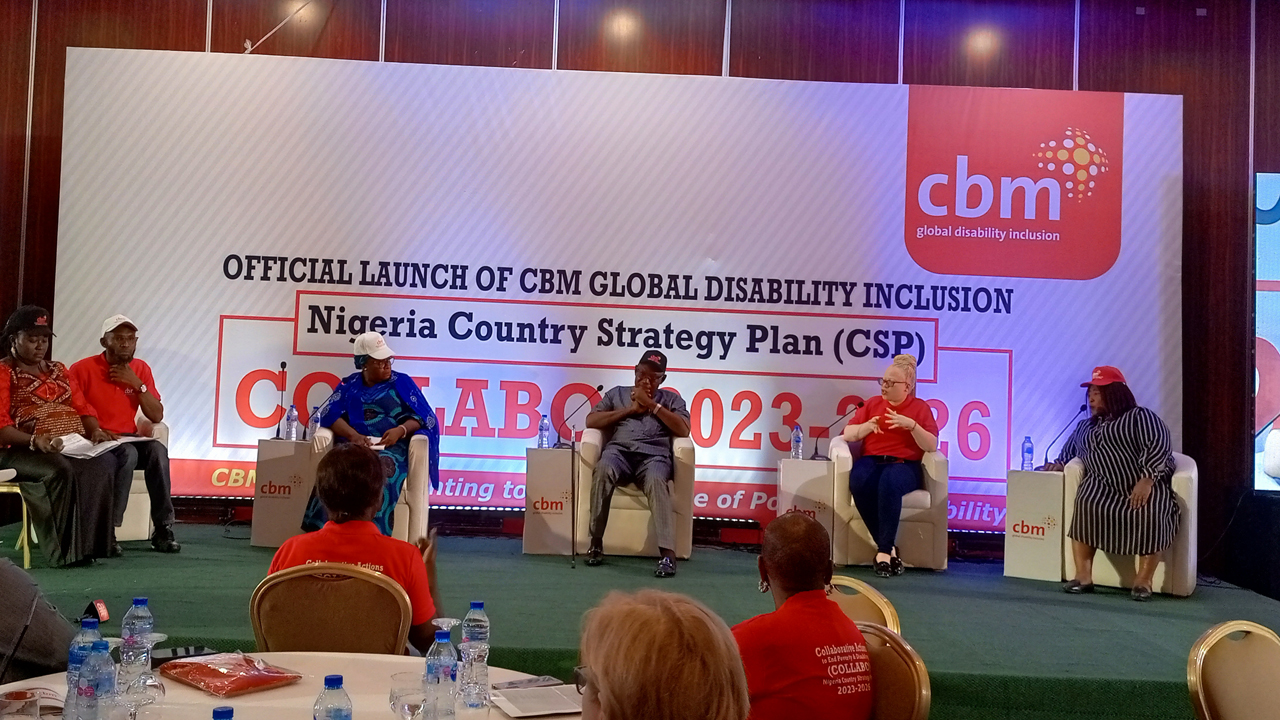 CBM Global
CBM Global
CBM Global Disability Inclusion (CBM Global, for short) Nigeria has launched the Country Strategic Plan (CSP) to bridge inequality gaps against persons with disabilities in Nigeria.
CBM Global also hosted its maiden Disability Inclusion Mindset series, which aims to elicit an improved understanding of the United Nations Convention on the Rights of Persons with Disabilities.
Country Director of CBM Global, Ms. Ekaete Umoh, stated this in Abuja, during the launching of Nigeria Country Strategic Plan (2023-2026) with the title: ‘Collaborative Actions to End the Cycle of Poverty & Disabilities (COLLABO)’, said that the strategic plan focuses on the core distinctives of CBM Global especially authentic partnership with the disability movement.
Ekaete said the Disability Inclusion Mindset series, provides a pedestal to promote a shared understanding of disability rights issues and mobilize support for the dignity, rights, and well-being of persons with disabilities.
She decried the prevailing poverty rate in the country, adding that this strategic plan provides some solutions to the numerous challenges affecting persons with disabilities.
She said, “Multidimensional poverty is worse in rural areas where about 72% are poor compared to urban areas where 42% of the people are poor. 83 million people in Nigeria live below the poverty line. 11% of the population live in the same household with at least one person with disability, with such households significantly poorer than those without any person with disability.
“71% of households with at least one person with disability are poor, compared to 62% of people who live in a household where no one has a disability.”
In her remarks, the Chief Executive of CBM UK, Kirsty Smith, who was represented by Mr. Frank Abu said that Nigeria, since her independence has been faced (and is still facing) huge, monumental challenges that have affected its growth and development.
He said, “Despite abundance in mineral and human capital development resources, the country has been unable to translate these potentials and opportunities into inclusive growth. It is true that persons with disabilities are mostly affected and constitute the majority of Nigeria’s poor.
“Data from the National Population Commission puts the total number of persons with disabilities in Nigeria at an estimated 19 million, and this puts the percentage of people with disabilities at 9.6 per cent approximately.
“Now more than ever before, the importance of this CSP launch is timely and comes at a critical juncture in the life of the organization where it has an opportunity to presents itself as an effective gateway through which persons with disabilities can be mobilized and reached with programs, projects and services.”






